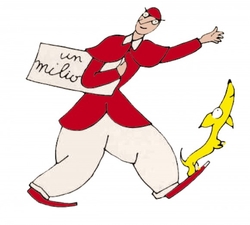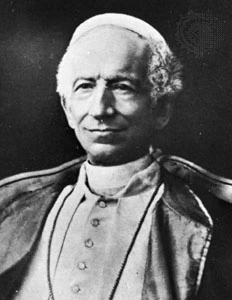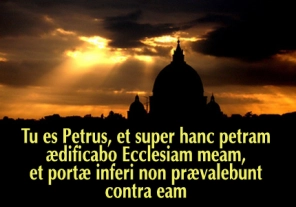How The Times Have Changed! “Tantum Ergo”
This is a delicious piece of Italian cinema of the Seventies, an excerpt of the episode of a famous comedy (“The New Monsters”, the remake of the extremely fortunate “The Monsters”), called “Tantum Ergo”. This episode is the more savoury, because it shows how the times have changed and how this sketch is, today, read in a completely different way that it was at the time. The lead actor is the great, late Vittorio Gassman.
The facts: a Cardinal has a car breakdown in the middle of a “borgata”, one of those heavily working-class neighbourhoods in Rome. He finds a nearby parish church. This parish is a “modern” parish, led by a “modern” priest.
The priest is holding a meeting of the “collective” (oh, those years!) of the parish, regarding the use of certain public spaces now in danger of being taken away from them to build a supermarket. In the very church, in front of the Blessed Sacrament, unbelievable things happen: loud screaming, very strong profanities, almost a row. The modern priest clearly doesn’t give a straw, so obsessed with “social justice” he is.
The Cardinal enters and when the priest, “Don Paolo Arnoldi”, introduces himself (“what is your name, my son?” asks the cardinal in a suavely threatening tone; the delicious non-verbal communication can be understood without understanding the language!) the Cardinal tells him : “I have already heard of you, my friend Paolo”, and the message is clear enough. He then sits, and listens.
Slowly, the dynamic begins to change: the Cardinal observes the mess, the screaming mob, the priest also screaming and obsessed with “votations” and “democracy”, the most unruly elements calling for violence. Annamo e menamo, says the most colourful and worst of them; this is Roman dialect for “let’s go and let’s thrash (them)”.
The Cardinal then has the word. He targets the very colourful hothead; repeats his words; then slaps him heavily in the face, pointing out that his violence hasn’t really achieved anything, and has only increased his rancor… (this episode became an extremely fortunate one and it is fair to say that still today there’s probably no Italian who doesn’t know it… )
Now fully in control, he goes on the pulpit, and things soon become rather explicit. He openly blames the obsessive search for earthly justice; the justice “of a priest who doesn’t feel the duty of carrying the sacred habit with dignity”, and points out to the necessity to focus first on heavenly rewards.
The mob is slowly persuaded. They listen in reverent silence now, as the Cardinal points out that “a church is not a place for strife and rows”, then restores some Catholic sacredness and reverence by lighting the place and having the bells sing, and the organist play.
He is now triumphing, the mob kneels, they cross themselves, even the violent boor is in tears of redemption. “Make yourselves heard up to St. Peter!”, says the Cardinal. He fully ignores the now openly angry “worker priest”, blesses the mob and goes away, the car being repaired in the meantime. The watcher clearly understands that this is a man of action, and there will be consequences for the priest.
Apart from the delightful sketch of the Italy of the Seventies, an element must be noted: in the intentions of the director, the Cardinal is the villain, and the priest the hero. This is clear from several ironic remarks (the young priest of dubious virility but unquestioning loyalty; the fake quotation from the Gospel; the in those times negatively charged authority of the Cardinal; his use of simple effect to impress the mob; his rhetoric, “manipulative” skills). In the director’s intentions the priest is the future, and the Cardinal the past still in power but destined to fade; the priest wants social justice, the Cardinal the preservation of the status quo, and so on.
The times have changed. As one Italian commenter points out,
the “working priest” has [….] in the end failed both in his aim of being a priest and in the one of being a paladin of the poor.
We see this short piece today and we understand that the “villain” was absolutely right, and the “hero” a complete ass, and a sacrilegious one to boot.
How the times have changed!
Mundabor
Posted on June 23, 2011, in Catholicism, Good Shepherds and tagged " I nuovi Mostri", Blessed Sacrament, Cardinal, Catholic, Catholic Church, Catholicism, Conservative Catholic, conservative catholicism, liberal priests, Religion and Spirituality, Rome, Tantum Ergo, Vittorio Gassman, worker priests. Bookmark the permalink. Comments Off on How The Times Have Changed! “Tantum Ergo”.



















